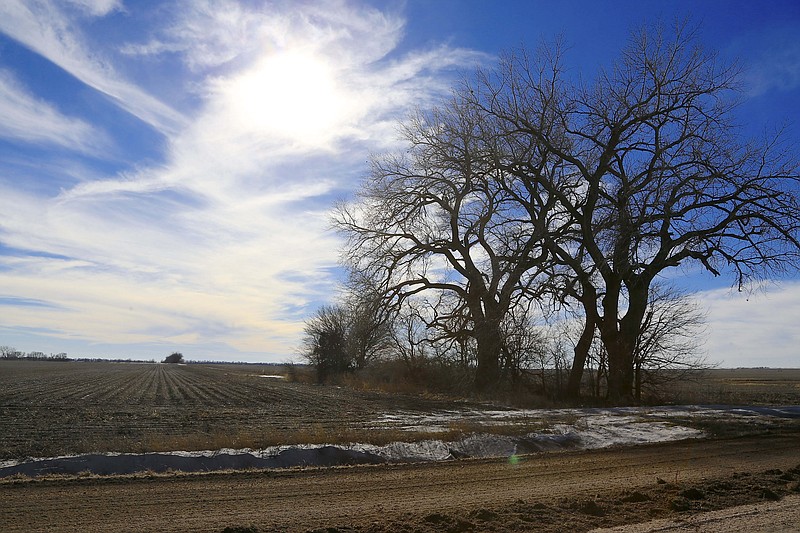The good news about the Keystone XL oil pipeline is that President Barack Obama's Tuesday veto of a bill for its approval may not be the last word on the subject.
The State Department, according to the White House, is still reviewing the pipeline, which requires presidential approval since it crosses an international boundary line. A White House spokesman even said the president could approve it after the State Department review is complete.
Would he sacrifice the possibility of 40,000 jobs -- a State Department number -- a second time to please his environmental voter base that he won't have to face again?
Let's hope not.
Obama, in brief remarks regarding his veto of the bipartisan legislation, cited "our national interest -- including our national security, safety and environment." But it's the environmental left, experts say, he wanted to please.
It's odd, too, since the State Department has said the project won't increase global greenhouse gas emissions because it will be extracted, refined and used somewhere, whether or not that's in the United States.
It also has found construction of the 1,179-mile pipeline from Canada to Texas could improve security and safety by reducing train traffic, which has increased with the growth of the energy sector. Indeed, it concluded the pipeline could prevent as many as six deaths and 48 injuries annually.
In addition, the State Department has noted that pipeline parent TransCanada has prepared an extensive risk-mitigation plan that addresses potential hazards to both the U.S. and to the environment in general.
Further, according to former U.S. Assistant Secretary of Energy Karen Harbert, "crude oil from Canada is replacing crude oils from other suppliers that have greenhouse gas emissions profiles as high as Canadian oil sands, or even higher."
"So instead of trying to kill Keystone and impose new and restricting regulations on hydraulic fracturing (which is responsible for much of the recent production in the U.S.)," she said in a Fox News analysis, "the Obama administration should be praising both as part of a more secure future for energy and the environment."
In the legislation, which was estimated to be a $7 billion investment in U.S. infrastructure, the president also had to choose between two huge political Friends of Barack, Big Labor and Big Environment.
Big Labor, not surprisingly, was not pleased with the veto.
"Given that the administration has done everything it can to delay and block the creation of good construction careers on the Keystone XL pipeline, the veto can be described with two words -- disgustingly predictable," Terry O'Sullivan, president of the Laborers' International Union of North America, told The Washington Times.
Both Richard Trumka, president of the AFL-CIO, and James P. Hoffa, president of the International Brotherhood of Teamsters, also have said they support it.
Trumka, in The Washington Examiner, cited the pipeline's economic benefits and urged its approval. Hoffa, in an op-ed, nudged the president to do the right thing, saying his veto then-threat was "passing on an opportunity to create jobs."
The Republican Congress promised a vote would be taken to override the president's veto on Keystone, but no one was predicting success. Although some Democrats -- who didn't vote for it the first time around -- have said they would vote to override, it likely won't be enough.
"When our own State Department review shows that this oil is coming out of the ground, it's only a question of how, then the decision to be made is this -- what is the safest way to move it to market?" Sen. Claire McCaskill, D-Mo., thought to be in a vulnerable seat in 2018, told The Washington Times. "Pipelines are better than barges or trains. That's common sense, and I will vote to override this veto."
Lacking a veto override, supporters next will hope the final State Department review -- which has so far taken more than 2,350 days -- will convince Obama of the pipeline's merits. And if that review somehow concludes that with some doable environmental steps, the pipeline will be safe, the president would be able to show how magnanimous he is -- and concerned about actual shovel-ready jobs -- to sign a bill and allow it to be built.
Stranger things have happened.
